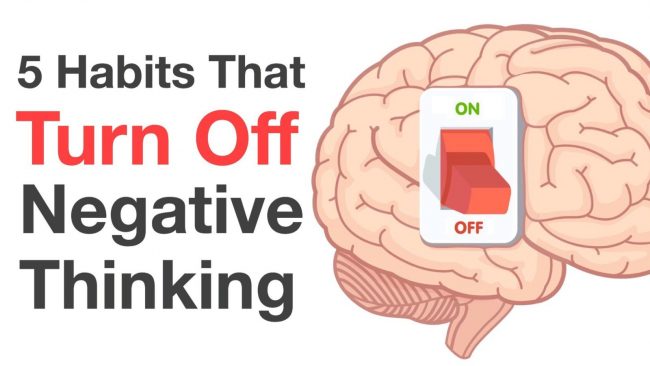Are you struggling to lose weight and maintain a healthy diet? You may have a toxic fatty acid that blocks weight loss.
Here's how a simple “Ice Hack” speed up my fat loss and helped me restore my health, watch now.

Negative thinking is the easiest way to slow down your success in every part of your life. Negative thoughts won’t forecast the future, shield your body from pain, make you look better, or reflect anything about your character. However, they can have an extremely negative impact on your health.
Chris Woolston, M.S. says:
“In the words of psychiatrist David Burns, MD, people who are depressed are often masters of illusion. Their pessimistic outlook — and some unconscious tricks of the mind — can turn triumphs into setbacks, and setbacks into personal failings.
Those of us prone to depression may be successful and accomplished, but we’re often plagued by negative thoughts about ourselves and our future. This thinking distorts our view of the world until everything seems dreary and hopeless.”
As per Buddha: “Your worst enemy cannot harm you as much as your own unguarded thoughts.”
Here are 5 habits that turn off negative thinking:
1. Observe The Negative Thought
When your mind is focused on negative thoughts, take your time, and observe them. Look for the root of the issue that could be unjustified, and then watch it disappear.
2. Question Any Ruminations
Ruminations are a pattern of thinking too much, and they tend to be useless, but they can cause negative thinking to become excessive. To be able to change the way you think about these thoughts, you should follow these guidelines:
- Make 2 columns out of a piece of paper. Mark the first column as “Thought”, and the second one as “Solution.”
- If your brain generates a negative thought, note the moment and then try to come up with the solution. When you are done with your day, keep track of the amount of times it came up or was present, and if it is not possible to discover any value from it, then consider it to be completely insignificant.
3. Find Evidence
Find the proof to support negative beliefs:
Create 2 columns. The one in which you record the evidence for it, while the other should be for any other credible evidence that proves the contrary. After that, if you are unable to demonstrate it with 100 percent accuracy, you can come up with a solution to change the situation.
4. Understand impermanence and neutrality
Negative thoughts do not have any significance, therefore it is important to recognize how to stop them from dominating your thoughts. Use a quote such as:
“This can be a negative idea. I’ll watch but not participate because it’s likely to run away.”
When your mind gets caught up in negative thoughts, try to discover a way to distract it and create no place for useless thoughts.
5. Mindfulness
Based on Christopher Bergland, a three-time winner in the Triple Ironman triathlon and scientist the concept of mindfulness is “much more basic than most people realize” and claims that it’s a lot simpler than we think:
“Stop. Breathe. Consider your thoughts. Anyone can benefit from this easy practice of mindfulness during the course of their day in order to remain positive, calm, and focused and gentle.”
Source: powerofpositivity.com










